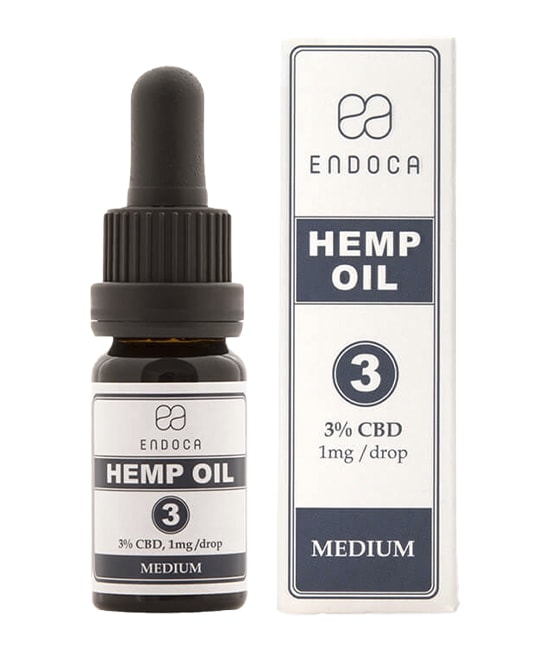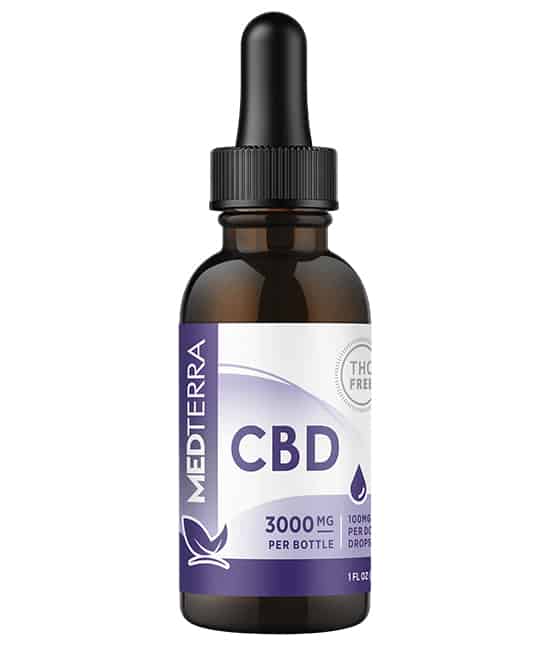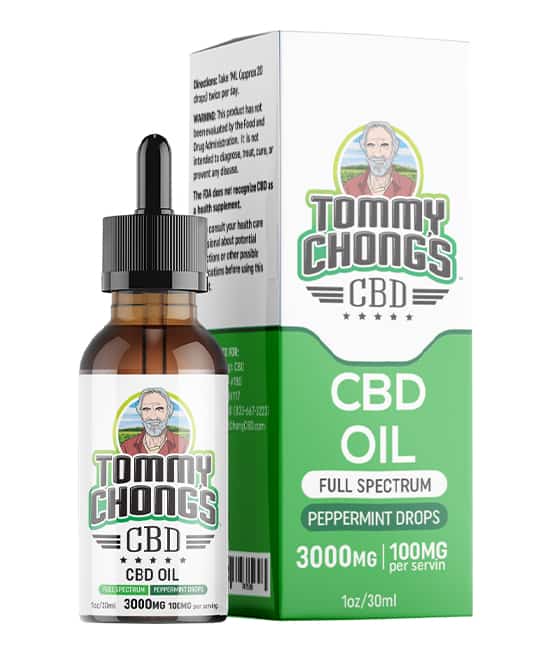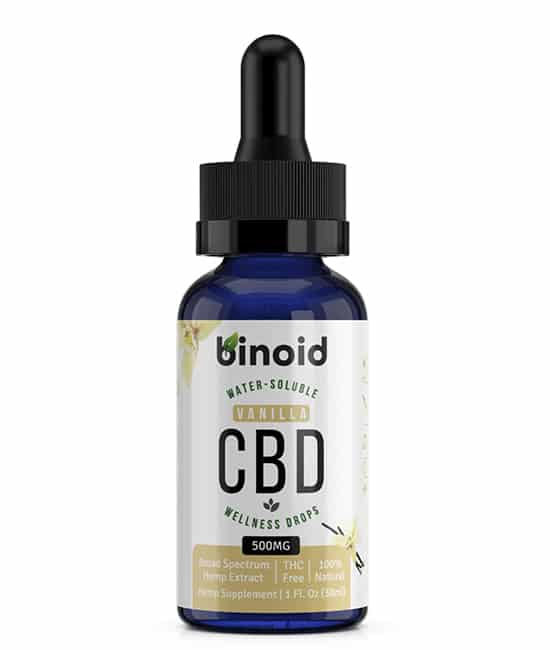CBD oil is everywhere these days. Only a few years ago, it was little more than a novelty. Fast-forward to today, and CBD products are easily found in just about every corner of the world.
As a loosely regulated industry, however, the market is still oversaturated with poorly made, low-quality products that end up being little more than a waste of money for customers. Fortunately, several reputable CBD brands have earned trust through years of exceptional service and, more importantly, through top-notch products that actually work.
This guide outlines what we feel are the best CBD oil companies in the industry based on extensive reviews and product testing. We’ve selected six outstanding CBD brands according to quality, taste, potency, customer ratings, and value for money .
Not in the mood to read the entire review? Check out our TOP-3 PICKS in the table below – including our #1 Wayofleaf’s Best Choice! (Continue with the entire article below to see the full list).
| Brand name | Endoca | Medterra | Premium Jane |
|---|---|---|---|
| Label |  |  |  |
| Potency | 9.5/10 | 9/10 | 10/10 |
| Price | 9/10 | 9/10 | 8.5/10 |
| Duration of effects | 9.5/10 | 9/10 | 8/10 |
| Taste | 9/10 | 8.5/10 | 10/10 |
| Online customer reviews | 9.5/10 | 9/10 | 9/10 |
| Brand reputation / customer service | 9.5/10 | 10/10 | 8.5/10 |
| Overall score | 9.3/10 | 9.1/10 | 9.0/10 |
| Link to purchase | CHECK PRICE | CHECK PRICE | CHECK PRICE |
| Coupon code | 15% off: 15CBDOFF | 15% off: MB15 | 20% off: 20JANE |
| Full Brand Review | Read full review | Read full review | Read full review |
Best CBD Oils: Summary of the Full Top-6 List
| 1. | Endoca – Best Value + Best Online Reviews | This brand is our team’s pick for the best overall CBD oil in terms of price/value. You’re unlikely to find a better CBD oil at this price. Check Endoca prices. | 9.3 / |
| 2. | Medterra – Best Tasting CBD Oil | If taste is important to you, you won’t find a better-tasting CBD oil than the product range from Medterra. Check Medterra prices. | 9.1 / |
| 3. | Premium Jane – Highest Potency CBD Oil | Premium Jane’s high-potency 5,000mg tinctures have fast-acting effects that start working within minutes. Check Premium Jane prices. | 9.0 / |
| 4. | Verma Farms – Best CBD Oil for Energy | Verma Farms has an incredible lineup of CBD oils for various all-around uses, but our team was particularly impressed by their CBD oil for energy and focus. Check Verma Farms CBD prices. | 8.4 / |
| 5. | Tommy Chong’s – Largest Selection | For those that always want to try something new, you can’t beat the selection and quality from Tommy Chong’s. Check Tommy’s Chong CBD prices. | 8.4 / |
| 6. | Binoid – Lowest Priced | Our team’s #1 option if price is your biggest consideration. Check Binoid CBD prices. | 8.0 / |
Top-6 Best CBD Oils | Reviews

The Endoca brand has a lot going for it in general, including the fact that it offers, in our view, the best value-for-money CBD oil on the market. You can purchase standard or THC-free versions, and there is hemp oil with up to 300mg of CBD per ml! Best of all, none of Endoca’s products break the bank, and its legion of delighted customers can’t get enough.
- There are several options with an extremely high concentration of CBD per ml of oil
- This brand’s products are created by hemp experts, herbalists, and plant scientists
- Endoca uses organic hemp plants and adopts strict quality control measures
- The oil with the highest CBD concentration is not available to Endoca’s large European customer base

For us, what set Medterra CBD oils apart was the fact that they are the best-flavored products we have ever tasted. The chocolate mint tincture, in particular, offers an extraordinary taste that uniquely combines the natural aromas of hemp with a subtle bitterness that’s not in any way overpowering.
- Offers CBD oils with added cannabinoids, such as CBN and CBG
- Contains flavor-enhancing terpenes such as myrcene, limonene, alpha & beta-pinene, and linalool
- Full-spectrum formula contains over 400 molecules from natural hemp plant extract
- The brand’s popularity is not always a good thing as its CBD oils are sometimes sold out

Premium Jane made it onto our list because we feel they offer the best high-potency CBD oil with their 5000mg Broad-Spectrum (THC-free) formula. This tincture is a bit pricey, but if you’re looking for an oil you can trust with reliable, fast-acting effects, it’s worth every penny.
- 2500mg CBD content that contains lab-verified phytochemicals
- Sourced from USA-grown, non-GMO hemp
- Extracted from raw, pesticide & fertilizer-free aerial plant parts
- Definitely not the cheapest CBD oil on our list

Verma Farms offers one of the industry’s most well-rounded lineups of CBD oils, with options to support everything from energy and focus to sleep and all-around wellness. When doing our reviews, our team was particularly impressed with their energy tinctures, as they leave you calm and relaxed but not tired.
- Great range of products to choose from
- Bundle packs options so you can combine and save
- Delicious, mouth-watering natural flavors
- The brand doesn’t sell a bigger CBD concentration than 1000mg

A lot of people like to mix things up and continuously try new CBD products. For those folks, we definitely have to recommend Tommy Chong’s. Borne from one half of the famous Cheech and Chong’s duo, the oils from this brand are designed and engineered with a robust terpene content to smell and taste just like actual marijuana. Oh, and the prices aren’t too bad either!
- Delicious taste and flavor
- Sourced from organic Colorado hemp
- Provides nano CBD, which may have a higher rate of bioavailability than standard cannabidiol
- Same bottle size is used for all four concentrations

For a relatively small brand, Binoid has a massive selection of not only products to choose from, but a huge selection of delta 8, THC-O and other oils made from “rare” cannabinoids. And the best part? They’re all excellently priced. In addition to selling one of the best inexpensive CBD oils out there, Binoid offers a superb selection of edibles – if you’re looking for the best value in terms of mg-of-CBD-per-dollar, you’ll be hard-pressed to find a better option.
- Low prices allow you to try out a few products to see which works best for you
- Available in a variety of flavor options
- Best used for calm, relaxation, and general wellness support
- Some customers aren’t happy with the brand’s shipping and customer service
WAYOFLEAF’S CHOICE: Why Endoca Is the Best CBD Oil Brand

Given the sheer number of CBD companies in today’s saturated market, it wasn’t easy to narrow down the brands that offer the best CBD oil. However, we painstakingly analyzed the various facets highlighted above, and the process ultimately worked well as we weeded out dozens of companies that didn’t come close to making the grade. Aside from considering CBD oil reviews from customers, we also looked at the overall quality of each oil, its taste and CBD concentration, and most importantly, the overall value for the money it offered. Ultimately, we settled on Endoca because it came out on top when all these rating factors were averaged.
Understanding What CBD Oil Is
CBD oil is a substance derived from the cannabis plant. It can come from either marijuana or hemp, both of which fall under the taxonomic classification of Cannabis sativa L. Proponents claim that CBD has many therapeutic benefits, including the potential to ease symptoms relating to anxiety, depression, sleep trouble, chronic pain, and even epilepsy.
At present, CBD (cannabidiol) is not an FDA-approved substance. The sole exception is an epilepsy drug called Epidiolex, which uses CBD as its key active ingredient.
The 2018 Farm Bill caused a fair degree of confusion in this regard, as it effectively legalized industrial hemp farming in most states (hemp cultivation is now legal in all 50 states). Depending on the specific strain, industrial hemp can contain significant amounts of cannabinoids, including cannabidiol. This is why the Farm Bill states that hemp is legal as long as it has a THC content of 0.3% or less.
The extremely low level of THC in hemp means those who use CBD oil derived from hemp should not feel an intoxicating high. However, as you will quickly discover in this guide, not every CBD product is created equal. The best CBD brands put time, effort, and money into producing the best products. This is one of the reasons why premium-grade CBD is relatively expensive.
While there are dozens of cannabidiol products to choose from, CBD oil remains among the most popular. Most oils come in a bottle with an integrated dropper cap; users simply place a few drops of oil beneath the tongue, hold for up to 60 seconds, and swallow. Waiting for 60 seconds enables cannabinoids in the oil to enter the body efficiently via sublingual glands and blood vessels. Most agree that CBD, when taken sublingually (below the tongue), has a higher absorption rate than CBD consumed orally.
Science-Backed Benefits of CBD Oil
When discussing CBD oil benefits, one must tread carefully. Remember, most CBD products are not FDA-approved. As a result, sellers can’t make any health claims about their products. They especially can’t say that CBD “treats” or “cures” any condition or ailment. Because of this, when CBD brands discuss how cannabidiol works in the body, they must use careful language.
That being said, aside from “curing” or “treating” anything, CBD can offer users tremendous benefits in terms of helping to establish and maintain a healthier lifestyle. Some of these key benefits include:
- Regulating sleep cycles and establishing natural sleep patterns
- Helping manage anxiety and everyday stresses
- Assisting in the management of things like pain, soreness, and joint stiffness
Research Is Ongoing
The level of study regarding the way CBD works in the body is increasing significantly. Many studies suggest the compound could reduce a person’s level of anxiety, for example, or help them sleep.
In a 2020 study by Atalay and colleagues, the authors state that CBD “has many beneficial pharmacological effects, including anti-inflammatory and antioxidant effects.”
A separate study by Hammell et al.; involving rats with induced arthritis showed that a transdermal CBD gel provided pain relief and reduced inflammation.
However, thanks mainly to the FDA approval of Epidiolex, the most detailed fields of study into the benefits of CBD oil relate to seizures and epilepsy. Many studies suggest that using cannabidiol can reduce the frequency and severity of seizures. For example, a study by Silvestro et al. published in April 2019 in Molecules suggests that CBD “could represent hope for patients who are resistant to all conventional anti-epileptic drugs.”
There are dozens of other research papers that draw similar conclusions. This study, published in Epilepsy Currents in 2014, provides a wealth of practical information regarding CBD and epilepsy. The trouble is that the lack of clinical research in other areas hinders the cannabinoid’s use for other conditions.
Without clinical research, the FDA is unlikely to change its stance – and without full legality, it will not be easy for researchers to get the funding they need to investigate the use of cannabidiol for other medical conditions.
The Best CBD Oil For Pain
CBD is also widely used for pain relief, and we see from this list that some of the best CBD oils may positively impact pain management. It’s crucial to remind readers that the U.S. Food and Drug Administration (FDA) has not approved CBD oil for pain management. This means that the products and statements made in this article are also not evaluated by the FDA. As a result, we must point out that CBD is not intended to diagnose, treat, cure, or prevent any pain-related disease or medical condition.
However, CBD has received significant attention even without the FDA’s approval. You’ve likely seen featured stories on top news networks or have seen/read about CBD being recommended by high-profile figures for various forms of pain relief. For instance, Charlotte’s Web, a company once branded by Yahoo Finance as “the world’s leading CBD brand by market share,” has been featured numerous times on sites such as CNN and The Wall Street Journal and in popular fitness magazines like Men’s Health.
Early Research Supports CBD Oil for Pain
The number of studies into CBD’s effect on pain is increasing rapidly. A study published in the European Journal of Pain looked at the impact of transdermal CBD on rats with induced arthritis. The researchers applied CBD gel to the rats’ pain sites in four different concentrations (0.6, 3.1, 6.2, and 62.3mg) for four consecutive days.
They found that the CBD gel significantly reduced joint swelling. Interestingly, the 62.3mg dose was no more effective than the 6.2mg dose.
Meanwhile, a study published in Frontiers in Immunology in 2018 tested the anti-inflammatory properties of CBD on mice. After applying the cannabinoid for ten days, the researchers found a reduction in inflammatory markers. They used a rodent encephalitis model that imitates the impact multiple sclerosis has on the body.
A study conducted at Syracuse University in 2021 again found that CBD has possible pain-relieving effects. It is major news because the team conducted the first-ever experimental pain trial to examine CBD’s effect on humans. The data showed that cannabidiol could make pain feel less unpleasant, although it didn’t reduce experimental pain intensity.
Perhaps most importantly, the researchers found that CBD improved pain measures compared to a placebo. Hopefully, this is the beginning and will lead to the acceptance of CBD as a painkiller.
Why the Best CBD Oils Aren’t Available in Every State
It is still relatively easy to find CBD in most areas. However, some states are more strict than others regarding what a CBD product is (and isn’t) allowed to contain. The Idaho Office of Drug Policy, for example, states that CBD products must contain zero THC and must come from one of the five outlined parts of the hemp plant.
The good news for residents across the USA is that the federal government is mostly leaving it up to individual states to establish regulations on the use and availability of hemp and CBD. Most states have fully accepted hemp’s newfound legality, though a small handful remain stubborn in their policies. (To learn more about the cannabinoid in your specific location, be sure to check out our CBD state guides.)
No matter where you live, investing in a reliable, well-made CBD oil that will work is the most important thing. As we outline in detail above, this can be inherently tricky – particularly given today’s saturated market with hundreds, if not thousands, of CBD brands.
Things to Look for When Searching for the Best CBD Oil
If CBD oil is available in your state, the next step is to identify the best CBD oils on the market. We recommend taking the following steps in your search:
Know the hemp source: Ideally, the CBD brand will use industrial hemp grown in the United States or one of a select few European Union nations. Hemp from regulated U.S. farmlands maintains high levels of quality. As a result, you know that the hemp is free from GMOs, fertilizers, and other contaminants such as pesticides and heavy metals.
Check for third-party lab reports: Lab reports are not cheap, but all reputable CBD brands pay for them. A lab report lets customers know any CBD product’s precise cannabinoid and terpene content. In most places, the maximum permitted THC content is 0.3%. However, as discussed above, in states like Idaho, products are not even allowed to contain trace amounts.
Look at the extraction method used: CO2 extraction involves using carbon dioxide to remove cannabinoids from the hemp plant. The supercritical version of this process is considered the gold standard and is what many top CBD brands use today to manufacture effective, highly potent CBD products. In general, cannabinoid extraction using CO2 provides the best quality CBD oil.
Know the difference between a CBD oil and a CBD tincture: When looking for the best CBD oils online, you will see that some CBD brands label their CBD oils as CBD tinctures, even when they are not alcohol-based tinctures. Apparently, this is in response to consumers incorrectly using the terms CBD oil and CBD tincture interchangeably. Naturally, this can be very confusing when trying to find the best CBD oils available. As mentioned, most leading CBD brands use CO2 extraction to remove the CBD from the hemp plant material.
However, manufacturers of CBD tinctures use high-proof alcohol in conjunction with low heat to extract the CBD for their products. Therefore, it is essential to read the product description and its list of ingredients on the packaging to know precisely how the CBD was extracted and what’s in it. Premium-quality CBD oil typically has a carrier oil base, such as MCT oil, whereas CBD tinctures are alcohol-based.
Find the appropriate CBD hemp extract: Customers these days can buy full-spectrum CBD oil, which contains nearly a full array of the cannabinoids and terpenes present in hemp. Many CBD brands also offer broad-spectrum options, which are almost the same but contain no THC. Finally, CBD isolates include nothing other than cannabidiol infused in a carrier oil. For those that believe in the entourage effect, full or broad-spectrum CBD oils are probably the way to go. However, CBD isolate oils can be useful for those that want (or need) to avoid consumption of THC.
Other things to consider and evaluate are:
- The CBD brand’s overall customer review scores
- Their standards of customer service and care
- Their reputation (including how long they’ve been in the industry)
- Their dedication to product transparency
- Their shipping, refund, and return policies.
It’s also essential to research and understand a company’s lab reports or Certificates of Analysis; this will let you know whether their CBD oils contain other potentially unwanted ingredients.
Trying to identify the best CBD oil on the market was tricky. There are always hot new brands gaining a lot of positive attention, and it can admittedly be difficult to separate blown-up hype from a product’s tangible value.
At the end of the day, it seems as if the best CBD oils always come from the ‘old hands’ – i.e., the companies we’ve listed above. These brands have been around for several years (a long time in the CBD world) and have developed stellar reputations. Ultimately, we believe Endoca is the #1 seller of CBD oil currently on the market. It offers the right balance between quality, cost, and range of products. Its Chocolate Mint CBD oil, in particular, tastes fantastic, and countless users say their products have benefited them in ways other brands can’t compare to. To check out the complete range of oils and other products using our coupon code, visit the official site here:




![The Best CBD Gummies [Updated Buyer’s Guide]](https://marijuanabreak.com/wp-content/uploads/2024/03/wol-beat-picks-best-gummies-2-640x225.jpg)

![Best CBD Spray [What Are the Choices?]](https://marijuanabreak.com/wp-content/uploads/2020/05/wol-best-picks-banner-best-cbd-spray-640x225.jpg)




![The 5 Best Marijuana Strains to Make Edibles [Listed]](https://marijuanabreak.com/wp-content/uploads/2020/04/wol-banner-the-5-best-marijuana-strains-to-make-edibles-640x225.jpg)



![5 Cannabis Strains with a Berry Flavor [Our Top Picks]](https://marijuanabreak.com/wp-content/uploads/2020/06/wol_5-cannabis-strains-with-a-berry-flavor-640x225.jpg)
